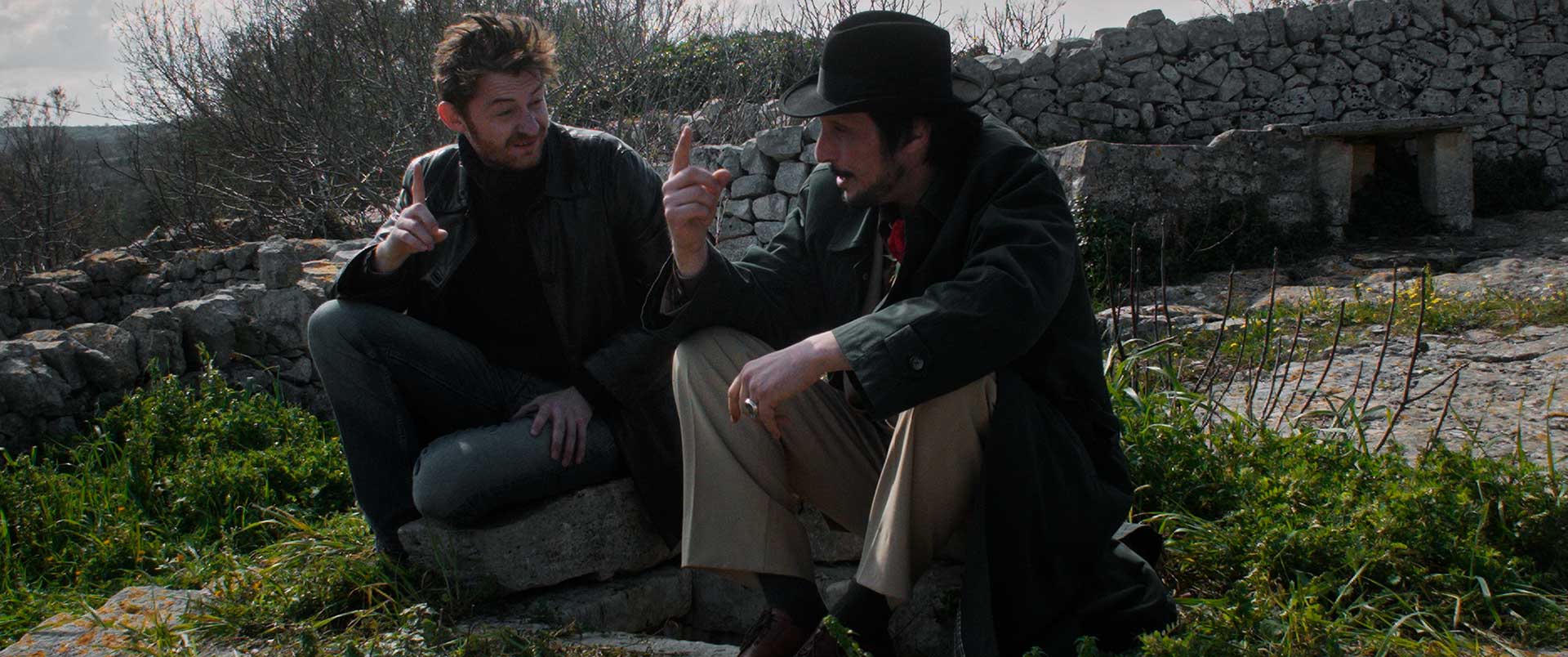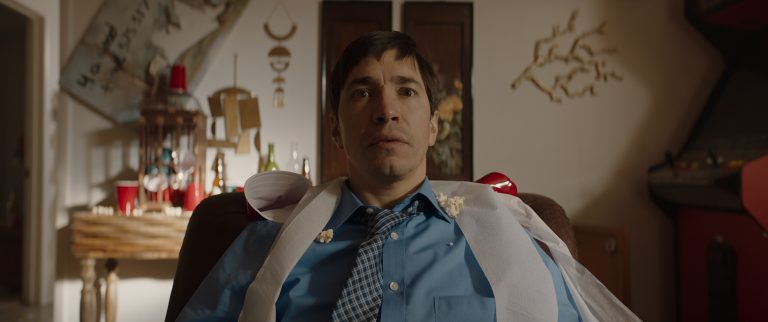Directed by the Bosnian cinematographer Caleb Bordeau and nominated for Best Film award at the Bosnian Film Festival last year, Nasumice (Adrift) is a slow-burn tale about a mediocre Bosnian photographer Elvis who chances upon an Italian man Rodolfo Valentino, on the streets of Rome, who instantly become friends. Rodolfo invites the photographer to his home back in Italy for a stay, which he does when he gets displaced. When he goes to his home in a small town in Italy, he finds that he is just a finely dressed-up jobless man who is always rebuked by his parents and ignored by the people around him. Set against the backdrop of the 1994 Yugoslav wars, this narrative is a pensive take on how some people are adrift from within: not everyone with a habitation has a home.
First things first, I really appreciate how distinctive the plot points are: two mediocre men who are unconventional in their ways, common knowledge of English that binds them in conversation, and the wartime conflicts that form a mere stage for proceedings- but all of this comes with a central theme of being adrift, which is something beautiful in its own right. The state of being directionless, the bewilderment can be extremely literal- but when this state is suppressed within, it causes the most pain. This is a distinct perspective with a lot to explore through, and reflect on- and the path Nasumice chooses is rarely taken by foreign-language cinema. It is an indie that benefits from its ideas.
Similar to Nasumice (Adrift) Review: IT COMES AT NIGHT [2017]: AN EXCELLENT YET EMPTY A24 HORROR
Having said that, it’s a shame that with such interesting impressions and a short, crisp pace of a duration less than 1.5 hours, what comes to emerge is a screenplay that chooses style over substance- which does an injustice to the themes and the characters in itself. The film is delicately paced and very structural across its running length, but that hardly matters because the film looks lovely but serves little purpose or even honesty, to the narrative. Unfortunately, this results in a film which is never able to rise above itself- or dare I say- its grand ideas. As a result, what could have been a breezy and contemplative sensation with ample world-building, remains a chamber piece that makes the most little things look stagey.
The film uses minimal dialogue to convey its expression- for most of the part, it’s quiet, both in spirit and on the screen. But the slow-burn nature is something that doesn’t feel earned- because when the words on paper do come to life, they feel ‘writerly’: as if this was an adaptation of a short story, and the characters utter lines like “Life is like a broken tower which isn’t connected to another.” Deeply philosophical, but also overly pretentious. We spend most of our time with Elvis and Rodolfo, but the film fails to delve into the psyche of either of the two men. This is disappointing because ultimately, the film unfolds from the perspective of the photographer Elvis, his career, and his experiences of displacement.
Nasumice also carries distinct moments of contemplation and grief, but these are the exact scenes that leave you cold and incredibly unmoved, which was wild to me as a viewer because I felt that the context in which these scenes are implied isn’t that bad- the more comedic scenes are better, although the film gets done with them at the beginning itself. The performances by Moamer Kasumovic and Marcello Prayer are decently passable, although their calculated exchange makes them feel distant from the viewer.
Also, Read – New Order [2020] Review – Another Level of Manipulation
Despite all of the flaws, Nasumice finely achieves the aesthetic: I think the film is visually stunning. Caleb Bordeau does his best job as the cinematographer in the film: although there’s not enough nuance here, the photographic detail is what the film achieves seamlessly. The various shots of flora and fauna, architecture, and even war, serve as a treat to the eye. The distraught and alienated areas of Southern Italy look pleasing with the lush green olive trees and abandoned white-colored buildings, which is to say that the world-building is immense: you get that you are transported to a place where time ceases to exist, and the urgency is pointless.
But all the scenic beauty deserved a better film, a film in which the characters came alive and became more than the literal reflections of the time they are in. No, Nasumice isn’t that film.
★★
Nasumice Trailer
Nasumice Links – IMDb





![The Passion of Joan of Arc [1928]: Every Bit Worthy Of Its Legendary Status](https://79468c92.delivery.rocketcdn.me/wp-content/uploads/2018/06/the-passion-of-joan-of-arc-768x542.jpg)


